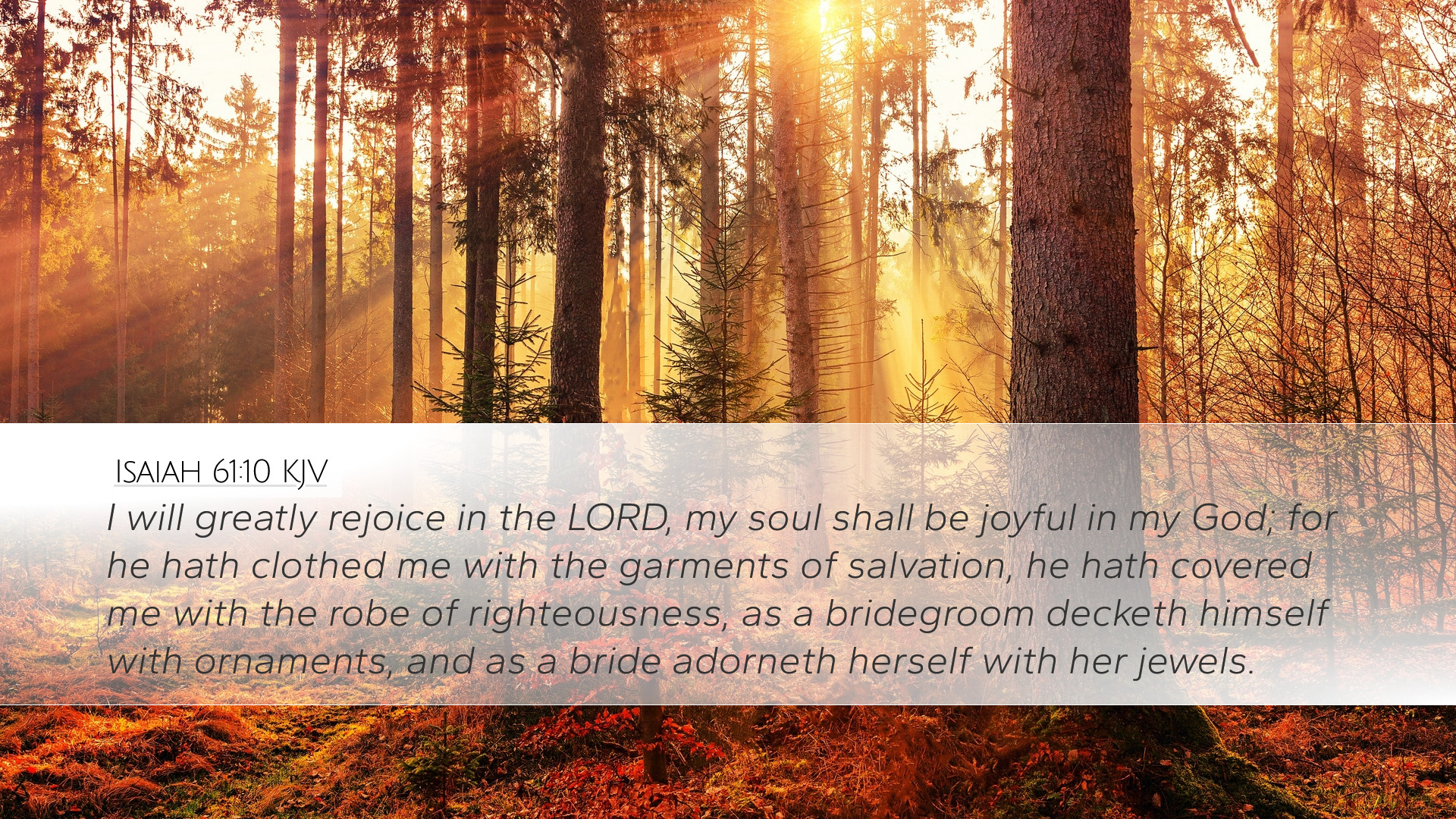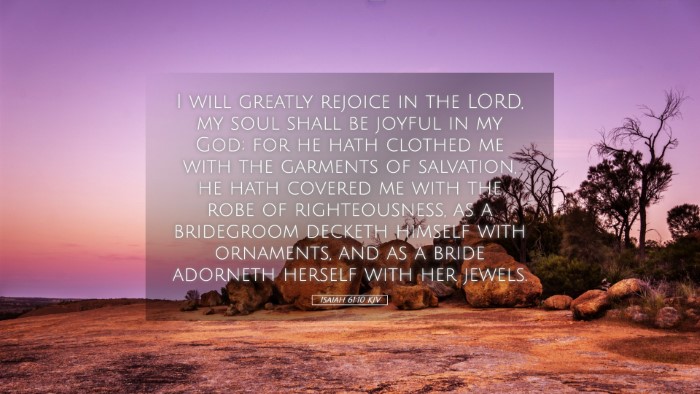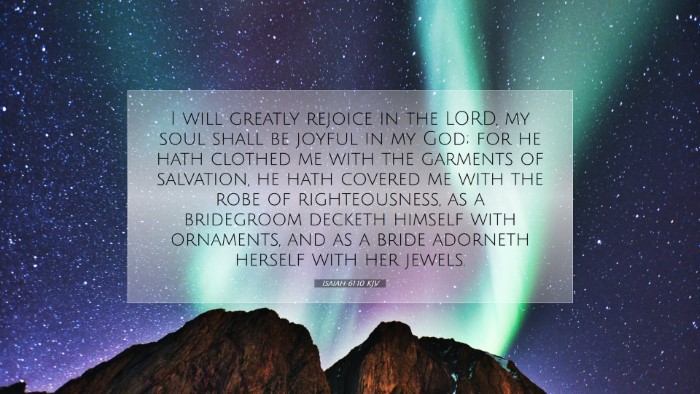Commentary on Isaiah 61:10
Isaiah 61:10 reads: "I will greatly rejoice in the Lord, my soul shall be joyful in my God; for he hath clothed me with the garments of salvation, he hath covered me with the robe of righteousness, as a bridegroom decketh himself with ornaments, and as a bride adorneth herself with her jewels."
Introduction
The profound declaration found in Isaiah 61:10 encapsulates the joy and transformation that comes from divine salvation. This verse serves as a climactic expression of worship, highlighting the relationship between God and His people. In this commentary, we integrate insights from several public domain commentaries, providing a rich understanding of the text.
Joy in Salvation
Isaiah begins with a powerful affirmation of joy: "I will greatly rejoice in the Lord." This is not merely an emotional outburst but a deep-seated response to the experience of salvation. Matthew Henry comments that this joy is rooted in the soul's realization of God’s redemptive work. The prophet expresses a personal commitment to rejoice, emphasizing the active choice to find joy in the Lord regardless of external circumstances.
- Divine Agency: The joy stems from God's initiative. It is God who clothes believers with salvation, underscoring that salvation is not a human achievement but a divine gift.
- Spiritual State: The mention of the soul suggests that true joy comes from inner peace with God. Albert Barnes notes that no earthly joy can compare to the joy found in a reconciled relationship with the Creator.
Clothed in Righteousness
The metaphor of getting dressed with salvation and righteousness is profound. "He hath clothed me with the garments of salvation, he hath covered me with the robe of righteousness." Adam Clarke emphasizes that these garments indicate a complete transformation and positional change before God. The act of clothing also signifies protection and honor.
- Garments of Salvation: This imagery conveys the idea that believers are covered by divine grace, shielding them from judgment. It signifies being set apart for God’s purpose.
- Robe of Righteousness: The robe represents Christ’s righteousness imputed to believers. Matthew Henry notes that it is not our own righteousness that we stand upon but that which Christ provides, allowing us to approach God confidently.
The Symbolism of a Bride and Bridegroom
The verse further illustrates the beauty of this transformation using the analogy of a bridegroom and bride: "as a bridegroom decketh himself with ornaments, and as a bride adorneth herself with her jewels." This imagery speaks volumes about the nature of joy and celebration accompanying salvation.
- Joyful Anticipation: Just as a bridegroom prepares for the wedding day with eagerness, believers are to reflect this joy in their lives. Albert Barnes correlates this with the anticipation of the coming kingdom of God.
- Divine Adornment: The adornments and jewels signify the wealth and richness of God’s grace. Adam Clarke remarks that the believer’s new identity is enhanced and made beautiful through divine favor.
Theological Implications
The theological significance of Isaiah 61:10 cannot be overstated. It embodies core Christian doctrines, including justification, sanctification, and eschatological hope.
- Justification: The robes of righteousness symbolize our justification by faith. Believers are declared righteous because of their union with Christ. Matthew Henry notes this is the heart of the Gospel.
- Sanctification: The garments also indicate a continual process of becoming more like Christ, inviting believers to live out their new identity in holiness.
- Eschatological Hope: The imagery of a wedding points to the ultimate union of Christ and His Church. This highlights the future promise of glory that awaits believers, fostering both hope and perseverance.
Conclusion
Isaiah 61:10 encapsulates a joyous proclamation of God’s salvation and righteousness. It invites the faithful to revel in the transformation brought about by divine grace. As we reflect on the richness of this text, we gain profound insights into our identity in Christ and the joy that accompanies our relationship with God.
In summary, the experience of salvation is not a distant event but a present reality that colors the believer’s life with joy. With our garments of salvation and robes of righteousness, we are called to reflect the beauty of God’s grace and proclaim it to the world.


